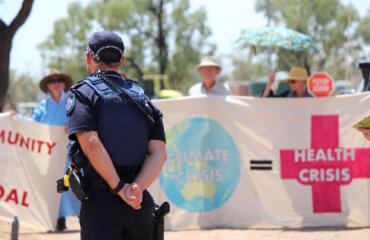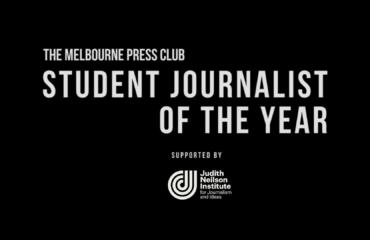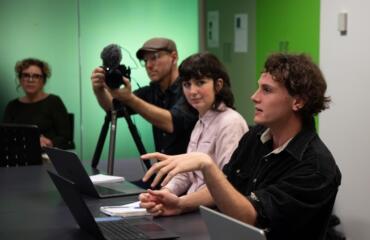Then, as adults, many people go through relationships, educate themselves and don’t talk much about the topic again.
After all, where does someone go to learn more about sex?

Michaeli Gwilliam, a specialist in somatic sex education – a body-focused approach to sex therapy – says there is so much to explore around sex but people tend to feel something is wrong with them if they seek education or support.
“When our kitchen fridge is broken we go to the repair shop; when our car is broken we go to a mechanic,” she continues, before noting that when people’s sexual relationships aren’t working they often shy away from the topic.
“[Because] humans have had years of suppression, shame and judgement, the first step in any session is always working on self,” she explains. After that, people are able to explore intimacy and connection with others.
Ms Gwilliam is one of the presenters at this year’s Celebrating Sexuality event, nicknamed “Sex Camp”, along with experts in dominatrix, sex witchery, Tantra, Japanese rope bondage and more.
“It is much easier to live a life of disconnect, than to challenge ourselves by going deep into our bodies,” she says, adding that this weekend’s camp provides a space for addressing such need. The two-day retreat, held at a private location on the Mornington Peninsula, will bring together more than 20 workshops where people can learn about a range of things around the broad topic of ‘sex’.
“It is much easier to live a life of disconnect, than to challenge ourselves by going deep into our bodies.” — Michaeli Gwilliam, sex education specialist
For example, a workshop titled “Vulva art” will invite attendees to learn more about the female genitals using art and craft.
According to organiser and health practitioner Jo Balmorth, the event has grown steadily in popularity since it was first held five years ago, with 200 participants expected this weekend.
However, for her, it is more important about maintaining a small space so there are proper resources for everyone, including access to counsellors, support networks and enough space for reflecting.
“Exploring sex and relationships can stir the emotional pot,” she says, and having a compulsory opening ceremony for participants and excluding late arrivals is one way to ensure attendees feel safe.
“Having everyone present at the opening allows each person to see that everyone else is an everyday regular person, who wants to live their life more fully,” she says.
“People arrive with little to no clarity as to why they are there,” she continues, but says the event engenders such trust that they are able to feel safe to explore aspects of sexuality.

One returning participant, a 32-year-old tradesman, says the variety of workshops offered at “Sex Camp” is appealing. “It was the first time I’ve ever had a ‘real’ sex education. This stuff wasn’t taught in school,” he says, while admitting to being nervous the first year he attended.
Another presenter, ‘sex witch’ Winter Icely, believes society has a long way to go before it can properly integrate authentic sexual expression and exploration. In the meantime, these types of events provided a consensual space for learning a “diversity of sexual teachings”.
A sex witch draws upon knowledge from tantric, taoist and pagan teachings, offering a ritual-based practice to deepen individuals’ “intuitive knowing and sensual awareness”, she explains.
“There can be a lot of fear in exploring sexual intimacy. It is a powerful mirror to our inner blocks and can cause a person to shut down,” adds Ms Icely. These blockages can make it challenging in relationships for people to go deeper with their partners.
Ms Icely began studying tantra and Taoism after feeling there was more to sex and connection than she had experienced. She says the practice completely changed her life.

She forms part of a duo who will be exploring magic practices, sensual cultivation and ritual at the camp in a bid to deepen peoples’ connections with themselves and in their intimate relationships.
Sex educator and counsellor Jeremy Shub says a common theme with couples is that one partner will have more sexual desire or libido than the other, and working through this can be challenging.
“It’s about getting to a place where two people can accept they are different, and finding a common place in the relationship to grow,” says Mr Shub, although, he admits, some couples might never get there.
“[Whereas, for individuals,] women often see me to work through abuse or trauma, and men classically see me for sexual dysfunction, which can come from a place of lacking self-worth or self-love.”
The former secondary school teacher is presenting a workshop at this year’s event on “erotic exploration through imagination”, with activities in guided visualisation, embodied self-work, pair work and a philosophical look at erotic themes and fantasies.
Ms Balmorth says the event evolved after conversations with founder Vanessa Florence, and the Melbourne community, who saw a need for an event around the topic of sex.
“Let’s be real,” she says, “although [sex] is a lot of fun, it also comes with its fair share of shame and taboo.” But she insists that intimacy is a public health issue.


